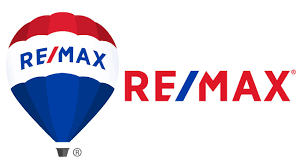Real Estate Marketing





To quickly generate clients for buyer and seller listings in the real estate business, you'll need to combine proven real estate marketing tactics with digital tools that can accelerate your lead generation efforts. Below is a comprehensive guide on how to get clients for both buyers and sellers in real estate quickly
1. Leverage Paid Advertising (Google Ads, Facebook, Instagram, YouTube)
Google Ads (Search & Display):
Google Ads can quickly target high-intent buyers and sellers.
Search Ads: Target keywords like "buy a home in [city]," "sell my house fast," "best real estate agent in [city]."
Display Ads: Use engaging display ads to increase brand visibility among people browsing websites related to real estate, home improvement, and moving services.
Local Targeting: Use geo-targeting to focus on specific neighborhoods or cities where your listings are available.
Facebook & Instagram Ads:
Social media platforms are powerful tools for real estate marketing. Run highly targeted ads based on demographics (age, family size, homeownership status) and geographic location.
Carousel Ads for showcasing multiple properties for sale.
Lead Generation Forms that allow potential buyers or sellers to inquire about properties or book consultations directly on Facebook or Instagram.
YouTube Video Ads:
Use YouTube for property walkthroughs or educational content (e.g., "5 Tips for First-Time Homebuyers"). These videos can be targeted to users who have shown interest in real estate or home buying.
2. Create a High-Converting Website with Lead Capture
Lead Capture Forms & CTAs:
Your website should feature clear calls-to-action (CTA) like "Request a Property Tour," "Get a Free Home Valuation," and "Sign Up for New Listings." Use simple lead capture forms that make it easy for visitors to provide their information.
Property Search & Listing Alerts:
Include an interactive property search tool and allow potential buyers and sellers to sign up for property alerts or market updates. This can help generate leads by encouraging users to sign up for ongoing listings in their areas of interest.
Landing Pages for Specific Campaigns:
Create landing pages for different types of clients, such as first-time homebuyers, luxury home sellers, or downsizers. Tailor your messaging and offers to suit each audience.
3. Utilize Local SEO and Google My Business (GMB)
Google My Business Optimization:
Set up and optimize your Google My Business (GMB) profile with accurate business information, images of your properties, positive reviews, and posts about new listings or promotions.
GMB Posts are a great way to highlight your latest listings and reach potential clients who are searching for homes in your area.
Local SEO:
Ensure your website and content are optimized for local search terms like "homes for sale in [city]" or "real estate agent in [city]."
Use local keywords on your website and blogs to improve your ranking in local search results.
Build local backlinks to strengthen your SEO.
4. Run Targeted Email Marketing Campaigns
Segmented Email Lists:
Build segmented email lists based on buyer or seller personas. For example, separate emails for first-time homebuyers, luxury home buyers, or sellers looking for a fast sale.
Automated Drip Campaigns:
Use email automation tools to send a series of personalized emails based on the prospect's behavior. For instance, send tips for first-time buyers or guides for sellers on preparing their home for sale.
Regular Market Updates:
Keep your leads engaged with regular email newsletters that provide local real estate market updates, new listings, and tips for buyers and sellers. Make sure these emails have clear calls to action that encourage recipients to reach out.
5. Utilize Social Media for Organic and Paid Campaigns
Social Media Engagement:
Regularly post content related to real estate trends, new listings, open houses, client testimonials, and success stories on platforms like Facebook, Instagram, LinkedIn, and TikTok.
Engage with your followers by responding to comments, answering questions, and running interactive polls or Q&A sessions on Instagram Stories or Facebook.
Social Proof & Client Testimonials:
Share client reviews and testimonials to build credibility and trust. You can post video testimonials from happy clients or share stories about successful transactions.
Live Open Houses & Virtual Tours:
Use Facebook Live, Instagram Live, or YouTube to host virtual tours or live open houses. This allows potential buyers to engage with you in real-time and ask questions, creating a sense of urgency and connection.
6. Partner with Local Businesses & Influencers
Local Business Partnerships:
Collaborate with local businesses, such as mortgage brokers, home inspectors, or moving companies, to cross-promote services. You can offer bundle deals or joint marketing efforts to attract buyers and sellers.
Influencer Marketing:
Partner with local influencers who have a large following to promote your listings or real estate services. This works particularly well on platforms like Instagram and TikTok.
7. Offer Incentives and Promotions
Discounted Services for Sellers:
Offer discounts or free services (like professional staging or photography) for homeowners who list with you. A special promotion can encourage sellers to act quickly.
Homebuyer Incentives:
Provide special incentives for buyers, such as covering closing costs, offering home warranties, or providing a home inspection credit. These perks can help make your listings more appealing and increase urgency.
8. Leverage Real Estate Portals
MLS Listings & Realtor Websites:
List your properties on major real estate websites like Zillow, Realtor.com, Redfin, and Trulia. These platforms have huge traffic, and listing your properties there gives you access to a larger pool of buyers and sellers.
Lead Generation from Portals:
Some real estate portals also offer paid services to capture leads, such as Zillow Premier Agent or Realtor.com’s Connections Plus. These platforms allow you to directly connect with interested buyers and sellers.
9. Host Webinars or Workshops
Buyer & Seller Webinars:
Host educational webinars or workshops on topics like "First-Time Homebuyer Tips" or "How to Sell Your Home Quickly" and invite potential clients to join. This builds trust and positions you as an authority in your local market.
Use AI for Lead Qualification:
After the webinar, use AI tools to automatically qualify leads based on their engagement level. This ensures that your team can follow up with the most interested prospects.
10. Use AI for Lead Scoring and Automation
AI Lead Scoring:
Use AI-powered CRM systems to automatically score leads based on how likely they are to convert. This helps you prioritize high-value leads quickly.
Automated Follow-Ups:
Set up automated follow-up emails or SMS messages that reach out to potential clients who’ve interacted with your website, attended an open house, or shown interest in specific properties.
11. Offer Free Property Valuations
Instant Home Valuation Tools:
Implement a tool on your website where potential sellers can get an instant estimate of their home’s value. This entices homeowners to reach out to you for further consultation.
Conclusion:
By combining the power of paid advertising, SEO, social media, local networking, email marketing, and AI-driven tools, you can quickly generate high-quality leads for both buyers and sellers in real estate. A multi-channel approach, with personalized messaging and clear calls to action, is essential for turning interest into conversions. Leverage these strategies to build a robust lead pipeline and quickly close deals in a competitive market.
